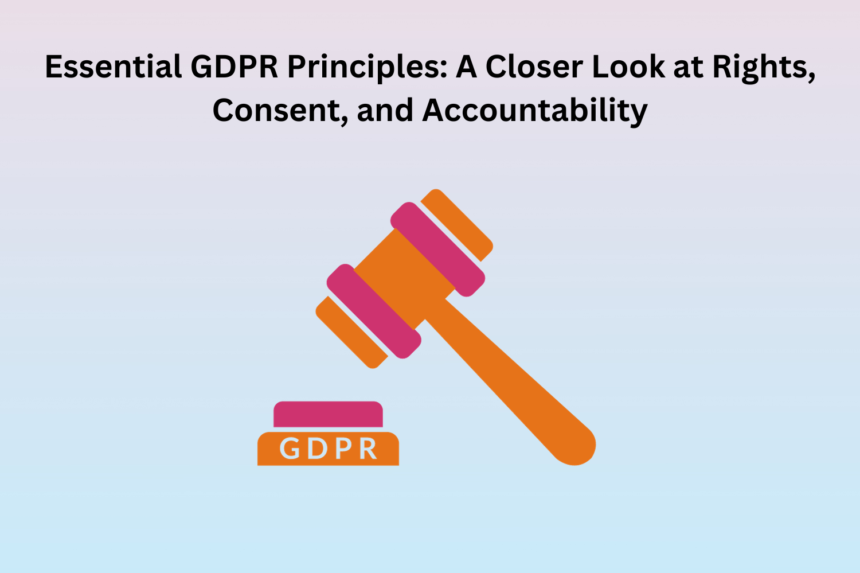Protecting people’s rights and privacy in the era of digital data has become critical and essential. The General Data Protection Regulation (GDPR) leads businesses through a framework that prioritises openness, responsibility, and adherence to individual rights. We can discuss GDPR Principles in this blog, emphasising the significance of rights, consent, and accountability. We’ll also look at how companies can improve their comprehension by taking a holistic strategy and getting GDPR Qualification.
Understanding the Foundation: GDPR Principles
The fundamental tenets of data protection laws, known as the GDPR principles, specify the duties and obligations of entities handling personal data. Let us examine three essential components in more detail: rights, consent, and accountability.
Rights of Data Subjects
The rights that individuals are granted, giving them control over their data, are fundamental to GDPR. These rights include the ability to see, amend, remove, and limit how personal data is processed. Additionally, data subjects are entitled to data portability, which lets them get their data and use it for other services. Comprehending and honouring these rights is essential for companies aiming to achieve GDPR compliance.
Consent Mechanism
A fundamental component of GDPR is consent, which mandates that organisations seek individuals’ express, explicit consent before processing personal data. Free, clear, informed, and specific consent is required. In addition to requesting consent, organisations must set up procedures that allow people to change their minds at any moment. Building confidence with data subjects and avoiding potential legal problems requires a thorough and documented permission process.
Accountability in Data Processing
The GDPR presents the idea of accountability, highlighting the fact that companies are active stewards responsible for their activities rather than only being passive data custodians. Accountability is putting compliance-assured measures into action, like establishing a Data Protection Officer (DPO), conducting data protection impact assessments (DPIAs), and keeping thorough records of all data processing operations. By encouraging a proactive approach, this idea pushes organisations to show their dedication to data protection.
Navigating GDPR Principles with Education: GDPR Course Online
Remaining informed and educated is crucial as organisations struggle with the nuances of GDPR. An online GDPR course can be a very helpful tool, providing an in-depth understanding of the regulatory environment, real-world implementations of the concepts, and the most recent developments in data protection.
Professionals can expand their knowledge in a flexible and accessible manner by enrolling in online GDPR courses. Legal underpinnings, individual rights, consent management, and the role of accountability in compliance are just a few of the themes that are frequently covered in these courses. Additionally, they are adaptable to certain organisational requirements, guaranteeing that staff members from different departments understand their responsibilities in maintaining GDPR standards.
Benefits of a GDPR Course Online
Comprehensive Knowledge
To guarantee that participants fully comprehend the regulations and their ramifications, online courses provide a thorough overview of GDPR principles.
Practical Application
Many online courses incorporate real-world scenarios, case studies, and practical exercises, enabling participants to apply their knowledge to common challenges faced by organizations.
Flexibility and Convenience
Professionals can access online courses at their own pace and convenience, allowing them to balance learning with their work responsibilities.
Certification
Completing an online GDPR course frequently leads to certification, which offers concrete evidence of mastery of GDPR concepts. Both individuals and organisations may find value in this qualification.
Conclusion
A company’s ability to successfully traverse the complicated world of data protection depends on its ability to comprehend and abide by GDPR standards. The fundamental tenets of GDPR—rights, consent, and accountability—shape an ethical and responsible approach to data processing. Adopting education, like an online GDPR course, enables people and organisations to support a culture of data protection and privacy in our linked digital world, in addition to complying with rules.







